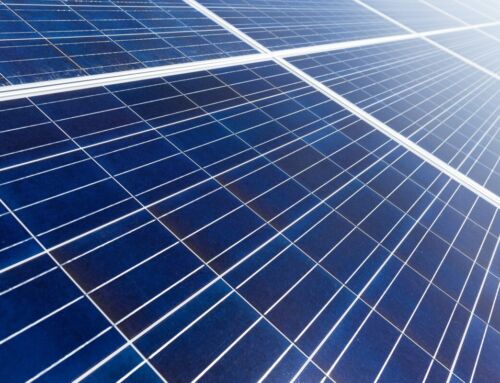Solar energy and panels have become increasingly popular and viable as more people recognise the need for sustainable and renewable energy sources. Solar power harnesses the sun’s energy to generate electricity, which helps us get a clean and efficient alternative to traditional fossil fuels. In this article, we will delve into the intricacies of solar energy and panels, explore their benefits, discuss the different types of solar panels, and highlight the role of NewSolarQuotes.com in helping customers get the best solar solutions for their needs.
Understanding Solar Energy and Panels
Solar power is the power produced from the sun’s radiation. It is a perpetual renewable energy source that can be harnessed without depleting natural resources. Solar panels, also known as photovoltaic (P.V.) panels, are devices that use sunlight to produce electricity. These panels are composed of multiple solar cells made from semiconductor materials like silicon.
When sunlight reaches the solar cells, it knocks electrons loose from their atoms, which generates a flow of electricity. This process is known as the photovoltaic effect. The electricity produced can then be used to power homes, businesses, and even entire communities.
Benefits of Solar Energy and Panels
- Environmental Impact: The most crucial benefit of solar energy is its minimal environmental impact. And unlike fossil fuels, solar power does not produce harmful emissions or pollutants, reducing the carbon footprint and helping combat climate change.
- Renewable Resource: Solar energy is renewable, meaning it will never run out as long as the sun exists. This contrasts sharply with finite fossil fuels like coal, oil, and natural gas.
- Energy Independence: By harnessing solar power, individuals and nations can work on reducing their dependence on imported fuels. This promotes energy security and can lead to more stable energy prices.
- Cost Savings: Although the initial installation of solar panels can be expensive, the long-term savings on energy bills can be substantial. Additionally, many governments and states offer incentives and tax breaks to encourage solar adoption, further reducing costs.
- Low Maintenance: Solar panels usually need very little maintenance. Once installed, they can last for 25-30 years with minimal upkeep, making them a hassle-free energy solution.
Types of Solar Panels
There are multiple types of solar panels to choose from, each with its unique features and advantages. The three main types are:
- Monocrystalline Solar Panels: These panels have a single crystal structure, which makes them extremely efficient and space-efficient. They are ideal for areas with limited space but are usually more expensive.
- Polycrystalline Solar Panels: These panels are made using multiple crystal structures, being less efficient than monocrystalline ones. However, they are more affordable and still offer good performance.
- Thin-Film Solar Panels: These panels are made by placing one or more layers of photovoltaic material onto a platform. They are lightweight and flexible, making them suitable for a variety of applications. However, these panels are generally less efficient than crystalline panels.
How Solar Panels Work
Solar panels operate by absorbing and converting sunlight into electricity through the photovoltaic effect. Here’s a step-by-step breakdown of the process:
- Absorption of Sunlight: Solar cells in the panels absorb sunlight, causing electrons in the semiconductor material to become excited.
- Generation of Electricity: The excited electrons move through the material, creating an electric current.
- Conversion of D.C. to A.C.: The electricity generated through solar panels is in the form of direct current (D.C.). Since most household appliances use alternating current (A.C.), an inverter converts the D.C. electricity into A.C.
- Distribution and Use: The converted electricity can power electrical devices, be stored in batteries for later use, or be fed into the electrical grid.
Applications of Solar Energy
Solar energy has a multiple useful applications, including:
- Residential Use: Homeowners can install solar panels onto their roofs to generate electricity for their home appliances. This can significantly reduce energy bills and provide a reliable power source during outages.
- Commercial Use: Businesses can use solar panels to power their operations, reducing overhead costs and demonstrating a commitment to sustainability.
- Solar Farms: Large-scale solar farms consist of thousands of solar panels installed over vast areas to generate electricity for the grid. These farms can provide power to entire communities.
- Off-Grid Systems: Solar energy can be used in areas lacking access to the electrical grid. Off-grid systems can power these regions’ homes, schools, and medical facilities.
- Portable Solar: Portable solar panels and chargers can power small devices like smartphones, laptops, and camping equipment, making them ideal for outdoor activities and emergencies.
Advancements in Solar Technology
The field of solar energy has seen numerous advancements in recent years, enhancing the efficiency and accessibility of solar power:
- Bifacial Solar Panels: These panels can absorb sunlight from both sides, increasing their efficiency. They are particularly useful in areas with high reflectivity, such as snowy regions.
- Perovskite Solar Cells: This emerging technology uses a new type of material that could potentially offer higher efficiency at a lower cost than traditional silicon cells.
- Solar Shingles: These are designed to look like traditional roofing materials while also generating electricity. They offer an aesthetically pleasing alternative to standard solar panels.
- Energy Storage Solutions: Advancements in batteries and related technology have made storing solar energy more feasible during nighttime or cloudy days. This development is crucial for increasing the reliability of solar power.
Challenges and Considerations
While solar energy offers numerous benefits, there are also some challenges to consider:
- Initial Cost: The investment required for installing solar panels can be high, although long-term savings and government incentives often mitigate this.
- Weather Dependency: Solar panels’ efficiency can be affected by weather conditions. Cloudy days and nighttime can reduce the amount of electricity generated.
- Space Requirements: For optimal efficiency, solar panels need to be installed in areas with minimal shading and sufficient space, which can be a limitation for some properties.
- Maintenance: Although solar panels require low maintenance, they still need regular cleaning and timely inspections to ensure they are functioning correctly.
NewSolarQuotes.com: Your Partner in Solar Solutions
At NewSolarQuotes.com, we understand the importance of making the transition to the use of solar energy as smooth and effective as possible. Our mission is to help customers get the best solar panels and solutions for their unique needs. We provide a comprehensive service that includes:
- Expert Advice: Our team of solar experts is available to answer any questions and provide personalized recommendations based on your specific situation.
- Quote Comparison: We offer a platform where you can compare quotes from multiple solar providers, ensuring you get the best deal on high-quality solar panels.
- Installation Assistance: We work with trusted installation partners to ensure your solar panels are installed correctly and efficiently.
- Incentive Information: We provide up-to-date information on government incentives, tax breaks, and financing options to make solar adoption more affordable.
- Customer Support: Our specially trained customer support team is here to assist you from initial consultation to post-installation support.
Visit NewSolarQuotes.com today to start your journey towards a cleaner, more sustainable energy future. With our help, you can convert the power of the sun into electricity and enjoy the many benefits of solar energy and panels.
Conclusion
Solar energy and panels represent a significant step towards a more sustainable and environmentally sound future. With its numerous benefits, including cost savings, energy independence, and minimal environmental impact, solar power is an attractive option worth considering for homeowners, businesses, and communities. By understanding and keeping updated with the different types of solar panels and how they work, you can make informed and properly-planned decisions about your solar energy needs.
NewSolarQuotes.com and similar websites like FreeSolarPowerQuotes.com are committed to helping customers get the best solar solutions, offering expert advice, quote comparisons, installation assistance, and ongoing support. Utilize the power of solar energy and panels and join the growing number of people making a positive impact on the planet.





